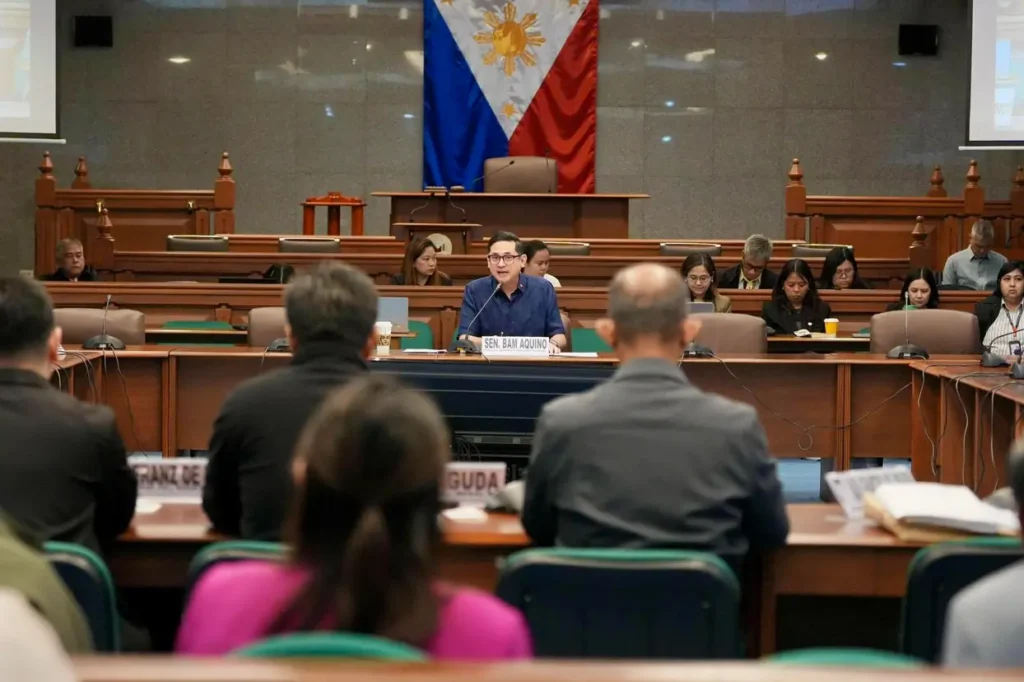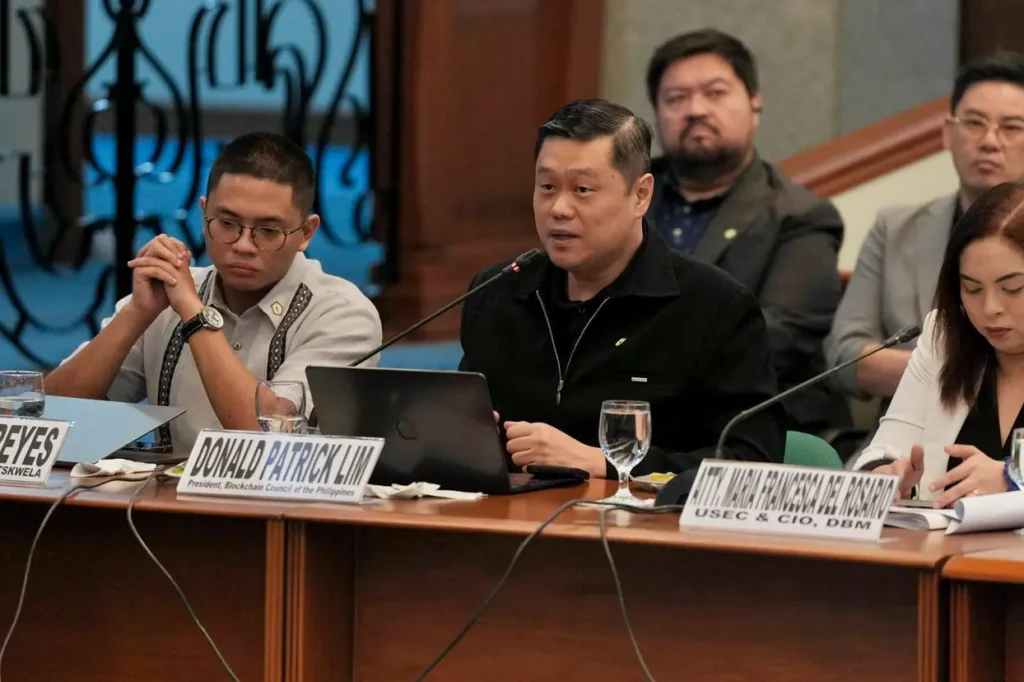|
Getting your Trinity Audio player ready...
|
The Philippine Senate held its first public hearing on the proposed National Budget Blockchain Act, also known as Senate Bill No. 1330. The hearing was led by Senator Bam Aquino, chairperson of the Senate Committee on Science and Technology. The measure seeks to place the national budget on blockchain to ensure transparency, accountability, and citizen participation in government spending.
- The Philippine Senate’s public hearing on National Budget Blockchain Act
- Blockchain to address transparency amid corruption
- Building on the full disclosure bill
- DICT vouches on blockchain against corruption
- Blockchain Council of the Philippines backs bill
- Everybody must work for systemic reform
“We’re very excited about this measure,” Aquino said in his opening statement. “From the first time we mentioned this, many groups have come forward to show support and we’re very happy that everyone is here” he said in Filipino.
‘Transparency, Honesty, and Security’
Aquino explained that blockchain technology can directly address long-standing flaws in the country’s budget process. “We made blockchain a priority because it is transparent, honest, and secure,” he said.
“To put our national budget on the blockchain answers many concerns and issues with our current system: where the budget process has been opaque, blockchain can make it transparent; in cases where there are insertions and supposedly completed projects, people can see when and how long the bidding, awarding, and fund disbursement took,” Aquino said.
“All contracts, bills of materials, all of that can be viewed once this law is implemented,” he added.

Addressing corruption and public anger
The senator contextualized the urgency of the bill in light of recurring corruption scandals. “When we filed this bill, investigations into corruption in government were just beginning.”
He pointed to public outrage over ghost projects and the misuse of funds involving flood control projects under the country’s Department of Public Works and Highways (DPWH). He also cited the youth-led protests on September 21, describing them as a wake-up call.
“This is not just a fight for the money stolen now or in past years,” Aquino added. “This is a fight for the future of our youth. It is a fight for the Philippines they will inherit and pass on.”
‘Blockchain is not a magic bullet’
Aquino emphasized that blockchain technology will not eliminate corruption overnight, but it could drastically improve transparency. “We also know that blockchain is not a magic bullet,” he said.
“We expect that many others will offer their own solutions against corruption,” he continued.
He acknowledged the concerns of experts who cautioned against legislating specific technologies. “We’ve also heard the calls from some not to legislate a specific technology, and that’s correct,” Aquino said.
“So in the end, when we do craft the law, we will talk about the standards and benefits of the technology, including but not limited to blockchain, to allow for changes in the future where new technologies might come up,” he added.
Building on the full disclosure bill
Aquino said the proposed Blockchain Act would integrate key provisions from the Full Disclosure Bill, previously championed by former Vice President Leni Robredo and several lawmakers.
“Another thing I would like to mention before we start is that we will be integrating salient points from the full disclosure bill that was filed by numerous senators and congressmen in previous congresses,” Aquino said. “Of course, blockchain secures that information, so we’ll be finding a way to put these points together.”
He noted that transparency should extend to how ordinary citizens compare contracts and expenditures. “When there’s transparency, when this is published and people know where funds go, it becomes easier to compare what contracts the government awards and what expenses it pays for,” Aquino said.
DICT: Blockchain can eliminate corruption
Department of Information and Communications Technology (DICT) Secretary Henry Aguda, who was present during the hearing, shared that a blockchain-enabled government could empower citizens and improve service delivery.
Aguda said that blockchain could “bring empowerment, quality services, and faster services to citizens, which can form trust to the government.” He also revealed that the DICT is already using stablecoins to trace peso transactions in banks.
During the hearing, Aquino asked Aguda if he could request President Ferdinand Marcos Jr. to certify the bill as urgent. Aguda replied, “Yes.”
Blockchain Council of the Philippines backs bill

The Blockchain Council of the Philippines issued a formal statement of support for the measure, joining groups like Fintech Alliance PH, Twala, BayaniChain Ventures, and the Philippine Association of Fintech Lawyers in backing the bill.
Aquino expressed gratitude to these stakeholders, saying their inputs “served as a guide in shaping the proposal.”
Collective action toward systemic reform
“At the end of all this, we are certain that we share one goal,” he continued. “Using new technology, let’s reform the system so that public funds can be safeguarded.”
Aquino also said he is optimistic that the bill will pass before the end of the year. “We could do things progressively,” he said, “so hopefully, the Filipino people can see the result by 2026.”
“I hope that everybody here can really come together and pursue this. Because at the heart of it, this is about trust—trust that every peso is spent for the people,” the Senator concluded.
Watch: Philippine ingenuity sparks green innovation at Shell LiveWire 2025

 03-04-2026
03-04-2026 




